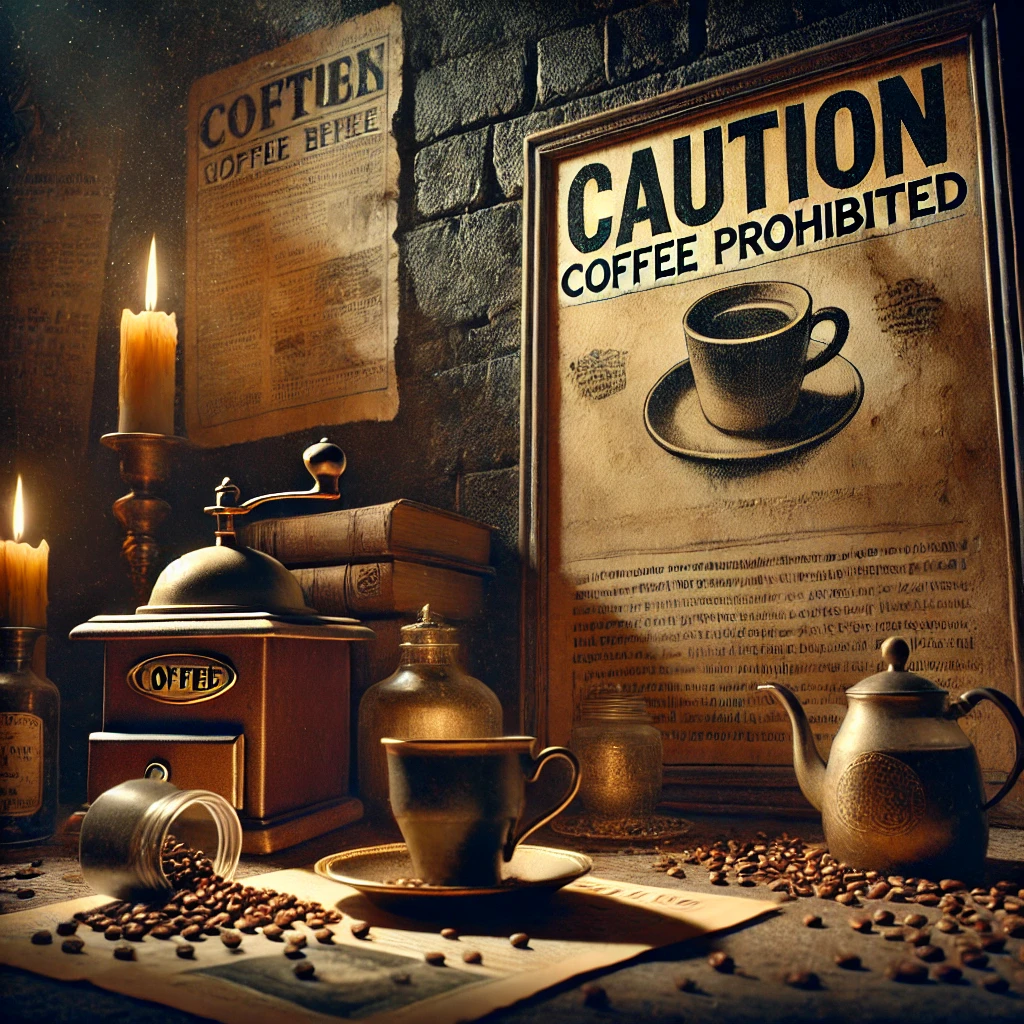Coffee: From a Forbidden Drink to a Cultural Symbol of Creativity
Coffee – a drink that millions of people around the world cannot live without. With a cup of coffee, we start our day, relax, or even seek creative inspiration. But did you know that in the past, coffee was once the subject of heated debates and even banned in many countries? Let’s explore the fascinating story of coffee’s tumultuous journey through history and how it became the cultural symbol it is today.

Coffee Banned in Mecca: Fear of Rebellious Thinking
In the 16th century, coffee began to spread from Ethiopia and became popular throughout the Arab world. In Mecca, coffee quickly became a beloved drink, and coffeehouses sprang up as gathering spots for locals. However, these coffeehouses were not just places to enjoy coffee; they also became hubs for discussions on social and political matters. This raised concerns among religious leaders, who feared that coffee stimulated the mind and might lead people to become more conscious, potentially resulting in rebellion and opposition to authority.
In 1511, coffee was officially banned in Mecca. Authorities claimed that coffee could lead to uncontrollable behavior and disrupt social order. However, the public's love for coffee was too strong, and not long after, the ban was lifted. Coffee continued its journey, spreading across the globe and becoming a popular beverage in many cultures.
King Charles II and His Attempt to Control Coffee in England
In the 17th century, coffee made its way to England, quickly creating a wave of excitement in London. Coffeehouses there became places where people, from philosophers and merchants to laborers, gathered to discuss politics, economics, and a wide range of topics. These coffeehouses became the "intellectual centers" of society at the time.
However, this freedom of thought worried King Charles II of England. He believed that coffeehouses could become gathering places for those opposing the monarchy. In 1675, he issued an order to close all coffeehouses in England, attempting to curb any discussions that might lead to resistance.
The ban faced fierce opposition from the public, who saw coffee as an essential part of daily life. Within a short time, King Charles II was forced to retract the ban, and coffeehouses continued to thrive, growing even more popular than before.
Coffee: A Symbol of Intellectual Freedom and Creativity
The bans could not stop the spread of coffee. In fact, coffee became a powerful symbol of intellectual freedom and innovation. Coffeehouses in Paris, London, and Vienna were not only places for socializing but also incubators for revolutionary ideas in thought and culture. Great thinkers like Voltaire and Rousseau spent countless hours in these coffeehouses, sharing ideas and developing philosophies that would change the world.
Today, coffee is not just a drink to keep us alert; it is also a catalyst for creativity and human connection. Coffee bridges meaningful conversations and inspires innovations that have led to major societal changes throughout history.
Coffee in the Modern World
Despite its challenges, coffee remains one of the most beloved beverages worldwide. From the quaint coffeehouses of Europe to modern coffee chains, coffee continues to symbolize connection and creativity. Each cup of coffee carries with it a fascinating history of prohibition, revival, and cultural significance.
As you enjoy your coffee each morning, remember that it’s more than just a drink. It’s a piece of history, a symbol of intellectual renewal and freedom of thought. Coffee was once banned, but its power to inspire and connect people has endured for centuries.
![]()
S54 Coffee
